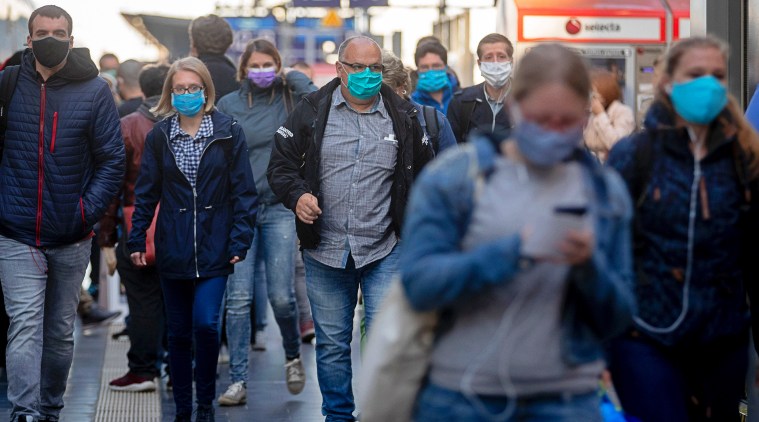 Passengers wear face masks as they arrive at the main train station in Frankfurt, Germany. (AP)
Passengers wear face masks as they arrive at the main train station in Frankfurt, Germany. (AP)
Coronavirus Global Updates: The emergencies chief of the World Health Organization said he fully expects China to share the genetic sequences from the resurgence of coronavirus that has recently hit Beijing, even though they have not yet done so. Chinese officials said that their examination of the virus shows it originated in Europe, but they have not yet shared the sequences with WHO or the global scientific community. “We fully expect our colleagues in China will share that information”, said Dr. Michael Ryan at a press briefing on Monday. Ryan told AP that the finding that this virus genome may represent a strain commonly transmitting in Europe is significant but that verifying the hypothesis requires the sequences to be shared.
Global cases surpassed 8 million, while over 4.36 people have succumbed to the infection. While European borders reopened, China is scrambling to control the spread of a fresh outbreak of coronavirus in Beijing, amid fears of a second wave of the infection in the country. Reopening continued in Mexico and Brazil despite cases climbing in the two largest nations in Latin America. And New Zealand, which had eased the curbs, reported its first new cases since May 22.
A Lancet research has found that one in five people worldwide have an underlying health condition that puts them at risk for severe Covid-19 illness if they contract the virus. An estimated 1.7 billion people suffer from conditions ranging from type 2 diabetes to heart disease, according to a study published in The Lancet Global Health. About 349 million of them would probably need to go to the hospital for treatment if they were infected.
Here are the other COVID-related news from across the globe
Beijing city raises COVID-19 emergency response level to II from III
Beijing’s city government on Tuesday raised its COVID-19 emergency response level to II from III, according to state media.
The Chinese capital has been battling with a fresh outbreak of the new coronavirus, with more than a 100 new cases confirmed in recent days.
Australia hits out at China, Russia for spreading ‘disinformation’
Australia on Tuesday lashed out at China and Russia for spreading “disinformation” during the coronavirus pandemic and asserted that it would continue to push for reform of global bodies such as the WHO.
Delivering a speech at the Australian National University in Canberra, Foreign Minister Marise Payne underlined that the European Commission last week issued a report which revealed that foreign actors and countries, led by Russia and China, had carried out “targeted disinformation campaigns” aimed at undermining democratic debate and stoking confusion about the pandemic.
The following day, she said, Twitter suspended over 32,000 accounts linked to state-run propaganda operations in China, Russia and Turkey, the Sydney Morning Herald reported.
“It was troubling that some countries are using the pandemic to undermine liberal democracy and promote their own, more authoritarian models,” Payne said.
Canada, US extend border restrictions to July 21
Canada and the US have agreed to extend their agreement to keep their border closed to non-essential travel to July 21 during the coronavirus pandemic.
Canadian Prime Minister Justin Trudeau said Tuesday’s agreement extends the closure by another 30 days. The restrictions were announced on March 18 and were extended in April and May.
Many Canadians fear a reopening. Americans who are returning to the U.S. and Canadians who are returning to Canada are exempted from the border closure. Canada sends 75% of its exports to the U.S. and about 18% of American exports go to Canada. The U.S.-Canada border is world’s longest between two nations.
Finland lifts emergency powers act
Finland says it has lifted the emergency powers act adopted by the lawmakers in mid-March to tackle the coronavirus crisis.
Finnish Prime Minister Sanna Marin said the measure to end the state of emergency, effective Tuesday, was taken as the COVID-19 infection rate has slowed down in the Nordic nation.
Marin said there was no need anymore for the exceptional measure act allowing bigger powers for the government and Finland would now gradually return to normal conditions.
She however stressed that “the end of the emergency act does not mean the threat of the epidemic is over” and urged Finns to continue practising social distancing and pay attention to hygiene.
Dexamethasone — first drug proves able to improve survival from COVID-19
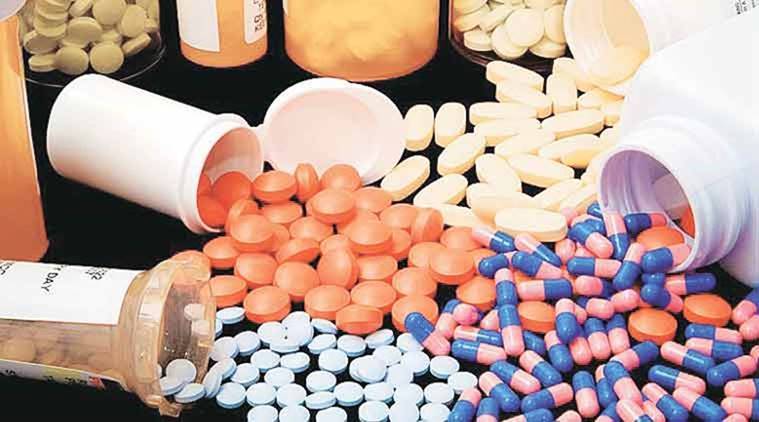 The drug was given either orally or through an IV.
The drug was given either orally or through an IV.
Researchers in England say they have the first evidence that a drug can improve COVID-19 survival: A cheap, widely available steroid called dexamethasone reduced deaths by up to one third in severely ill hospitalised patients.
Results were announced Tuesday and researchers said they would publish them soon. The study is a large, strict test that randomly assigned 2,104 patients to get the drug and compared them with 4,321 patients getting only usual care.
The drug was given either orally or through an IV. After 28 days, it had reduced deaths by 35% in patients who needed treatment with breathing machines and by 20% in those only needing supplemental oxygen. It did not appear to help less ill patients.
“This is an extremely welcome result,” one study leader, Peter Horby of the University of Oxford, said in a statement. “The survival benefit is clear and large in those patients who are sick enough to require oxygen treatment, so dexamethasone should now become standard of care in these patients. Dexamethasone is inexpensive, on the shelf, and can be used immediately to save lives worldwide.”
First drug proves able to improve survival from COVID-19
Researchers in England say they have the first evidence that a drug can improve COVID-19 survival: A steroid called dexamethasone reduced deaths by up to one third in severely ill hospitalized patients.
Results were announced Tuesday and researchers said they would publish them soon. The study is a large, strict test that randomly assigned 2,104 patients to get the drug and compared them with 4,321 patients getting only usual care.
The drug was given either orally or through an IV. It reduced deaths by 35% in patients who needed treatment with breathing machines and by 20% in those only needing supplemental oxygen. It did not appear to help less ill patients.
Covid-19 vaccine at least a year away, say scientists
Vaccine design is still an empirical, trial and error process and a preventive against COVID-19 could be at least a year away, say scientists as information on developments in therapeutics to combat the infection flows in a steady trickle from across the world.
While quelling the buzz of a quick breakthrough, the scientists also hold out hope that the process might be cut short by a few months if testing approvals and scale-ups in manufacturing happen simultaneously.
According to the World Health Organisation, 10 candidate vaccines for COVID-19 are in the clinical evaluation and 126 are in the preclinical stage. Preclinical development is a stage of research during which important feasibility, iterative testing and drug safety data are collected, while clinical trials are research studies performed on people.
Pakistan’s IT and Telecommunications minister tests positive for coronavirus
Pakistan’s Information Technology and Telecommunications Minister Syed Aminul Haq was tested positive for the coronavirus on Tuesday, joining a long list of politicians who have tested positive for the virus that has killed 2,839 people in the country.
Haq confirmed that he had been suffering from persistent fever for the past one week which had turned into typhoid, Geo News reported. The Muttahida Qaumi Movement leader, who was appointed as Minister for IT and Telecommunications on April 6, 2020, said that as soon as he became aware that he was infected with the coronavirus, he isolated himself.
The number of COVID-19 cases is increasing rapidly in the country and so far, several lawmakers have been infected with the virus. At least four lawmakers, including a provincial minister, have died due to coronavirus in Pakistan.
UK’s Imperial College begins human trials for COVID-19 vaccine
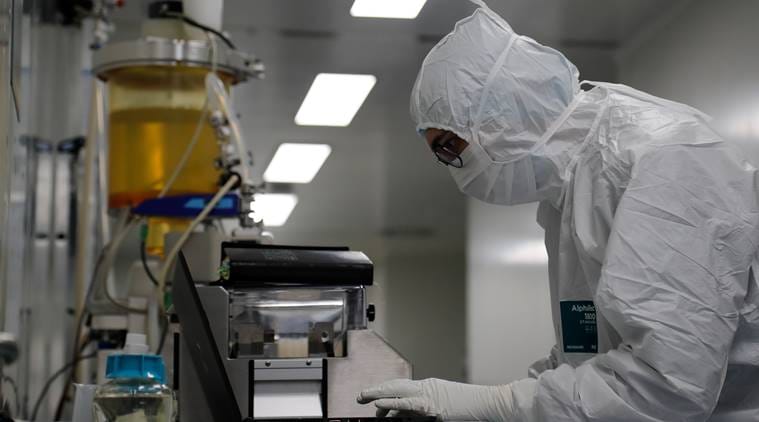 Imperial College London said its vaccine candidate is being developed and trialled as a result of a 41-million pound UK government funding and a further 5 million pound in philanthropic donations. REUTERS/Anton Vaganov
Imperial College London said its vaccine candidate is being developed and trialled as a result of a 41-million pound UK government funding and a further 5 million pound in philanthropic donations. REUTERS/Anton Vaganov
Clinical researchers began human trials this week of a new coronavirus vaccine developed by scientists at Imperial College London. The study, which involves a set of people being immunised with the vaccine, will be the first time trialled on humans and will test whether it is well-tolerated and produces an effective immune response against COVID-19.
The COVID-19 pandemic has claimed thousands of lives and had a huge impact on daily life. In the long-term, a viable vaccine could be vital for protecting the most vulnerable, enabling restrictions to be eased and helping people to get back to normal life, said Professor Robin Shattock, from the Department of Infectious Disease at Imperial who is leading the work.
The researchers expect to publish findings once the safety data are available and are hopeful a viable vaccine could be available in the first half of 2021. They say the vaccine has undergone rigorous pre-clinical safety tests and in animal studies it has been shown to be safe and produced encouraging signs of an effective immune response.
Imperial College London said its vaccine candidate is being developed and trialled as a result of a 41-million pound UK government funding and a further 5 million pound in philanthropic donations.
UK unemployment rising ‘faster than Great Depression’
The number of people in the UK claiming job-related benefits increased by a monthly 23.3% in May to 2.8 million, according to official figures released Tuesday that likely underestimate the toll on the labour market of the coronavirus lockdown.
The Office for National Statistics said that the so-called claimant count – which includes both people who work on reduced income or hours and those who are actually unemployed – was 125.9% higher than in March, when the country was put into lockdown. The statistics agency also said the number of people on payroll fell by 2.1%, or 612,000, between March and May.
Coronavirus tracing app a test for privacy-minded Germany
Germany launched a coronavirus tracing app Tuesday that officials say is so secure even government ministers can use it.
Smartphone apps have been touted as a high-tech tool in the effort to track down potential COVID-19 infections. Experts say finding new cases quickly is key to clamping down on fresh clusters, especially as countries slowly emerge from lockdowns and try to avoid a second wave of infections and deaths. But governments in Europe have run into legal and cultural hurdles, trying to reconcile the need for effective tracing with the continent’s strict data privacy standards.
Germany, where a person’s right to their own data even after death is rooted in the constitution, has proved a particular challenge. Early government suggestions about using location data including cell tower information and GPS coordinates for the app prompted a swift backlash.
Ten nations account for most COVID cases: WHO
In the past two weeks, countries have reported more than 100,000 new cases almost every day, and 75 per cent are coming from 10 countries, mostly in the Americas and South Asia, Tedros Adhanom Ghebreyesus, the head of the World Health Organization, said at a briefing in Geneva. That means every day there are more cases reported than during the first two months of the outbreak. There are many hot spots in Latin America, and cases are also increasing in Africa, the Mideast and Central Europe.
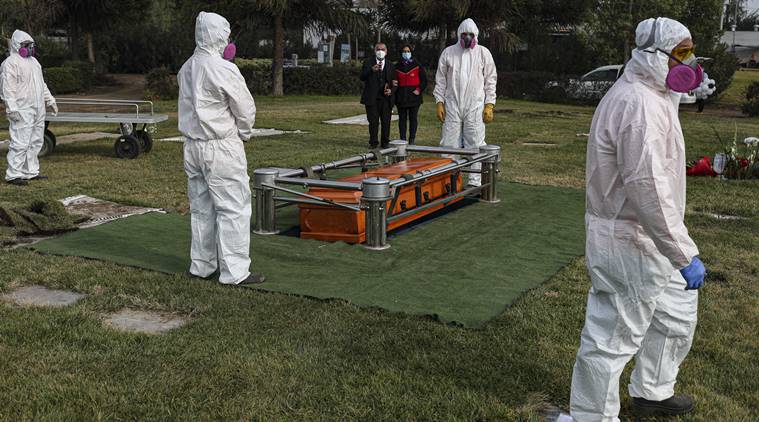 Cemetery workers wearing protective gear against the new coronavirus, walk after carrying the coffin of 72-year-old Monica Lagos to her grave at the Manantial cemetery in Santiago, Chile (AP)
Cemetery workers wearing protective gear against the new coronavirus, walk after carrying the coffin of 72-year-old Monica Lagos to her grave at the Manantial cemetery in Santiago, Chile (AP)
US revokes emergency use of malaria drugs to treat Covid-19
The Food and Drug Administration revoked emergency-use authorization for two malaria drugs — Chloroquine and hydroxychloroquine — touted by President Donald Trump as Covid-19 treatments after determining they were unlikely to work against the virus and could have dangerous side effects. Citing reports of heart complications, the FDA said the drugs pose a greater risk to patients than any potential benefits. They quickly came under fire from US President Donald Trump, who said only US agencies have failed to grasp its benefit in fighting the coronavirus.
The FDA said it was no longer reasonable to believe that hydroxychloroquine may be effective in treating the illness caused by the novel coronavirus https://t.co/O9x9wNrSv5 pic.twitter.com/RtaNvOWdK6
— Reuters (@Reuters) June 16, 2020
United Airlines to ban passengers who refuse masks
United Airlines said it will strengthen mandatory mask policies by placing passengers who fail to comply on an internal travel restriction list. Customers on the list will lose their travel privileges on United for a duration of time to be determined pending a comprehensive incident review. The mandatory mask policy is expected to remain in place for at least the next 60 days.
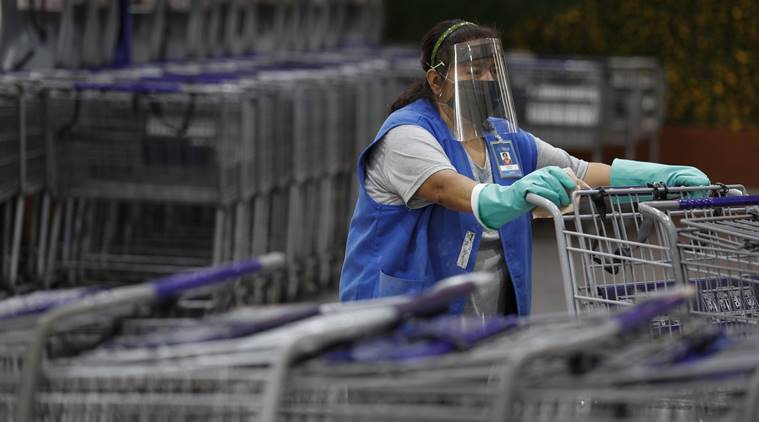 An employee of Sam’s Club cleans carts with a disinfectant solution between uses, at Patio Santa Fe shopping mall, where businesses deemed essential have been operating with health and safety protocols, in Mexico (AP)
An employee of Sam’s Club cleans carts with a disinfectant solution between uses, at Patio Santa Fe shopping mall, where businesses deemed essential have been operating with health and safety protocols, in Mexico (AP)
Oscars 2021 delayed by two months; to be held in April now
For the fourth time in its history, the Oscars are being postponed. The Academy of Motion Picture Arts and Sciences and the ABC Television Network said on Monday that the 93rd Academy Awards will now be held April 25, 2021, eight weeks later than originally planned because of the pandemic’s effects on the movie industry.
It’s true! Next year’s #Oscars will happen on April 25, 2021.
Here’s what else you need to know:
– The eligibility period for the Oscars will be extended to February 28, 2021
– Nominations will be announced on March 15, 2021
– @AcademyMuseum will open on April 30, 2021 pic.twitter.com/cTsqOfsf8k— The Academy (@TheAcademy) June 15, 2020
Beijing reinstates virus controls as another outbreak grows
Beijing is imposing further control measures in an attempt to prevent a new outbreak in the capital from spreading to other parts of the country. In addition to locking down communities and ordering mass testing, China’s capital is banning residents of areas considered at high risk from leaving the city, health authorities say. Those from such areas who have already left must report to local health bureaus as soon as possible. Beijing officials reported on Tuesday 27 new confirmed COVID-19 cases for June 15, taking the cumulative number of infections in the city’s current outbreak to 106.
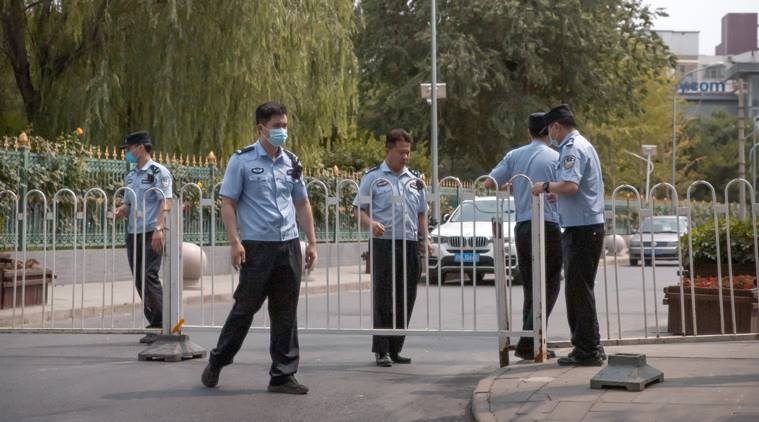 Police officers pull a barricade across a road leading to a residential neighborhood near the Xinfadi wholesale food market district in Beijing (AP)
Police officers pull a barricade across a road leading to a residential neighborhood near the Xinfadi wholesale food market district in Beijing (AP)
New Zealand report two new cases
New Zealand is no longer free from the coronavirus after health officials said they had found two new cases, which they said were imported from recent travel to the United Kingdom. Officials said the two cases were connected. Until Tuesday, New Zealand had gone more than three weeks without any new cases and had declared that everybody who had contracted the virus had recovered, aside from the 22 people who died. In total, New Zealand has had just over 1,500 cases.
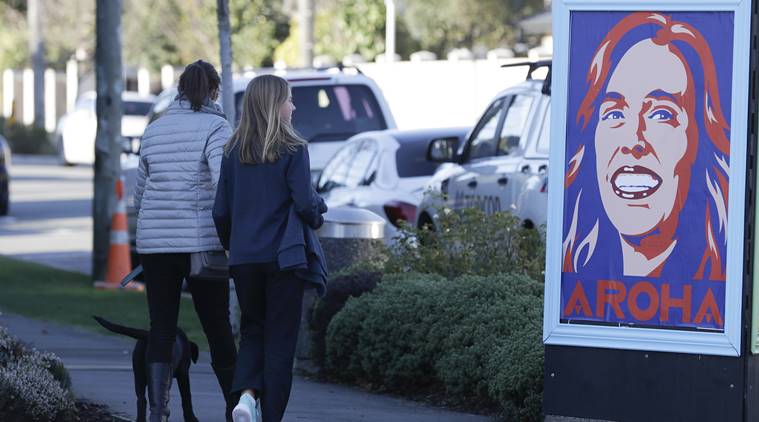 Pedestrians walk past a billboard featuring Prime Minister Jacinda Ardern with the word Aroha, meaning love, in Christchurch, New Zealand (AP/File)
Pedestrians walk past a billboard featuring Prime Minister Jacinda Ardern with the word Aroha, meaning love, in Christchurch, New Zealand (AP/File)
Philippines puts city back under virus lockdown
Philippine officials have placed a central city back under strict lockdown and retained quarantine restrictions in the capital for another two weeks as coronavirus infections continue to spike alarmingly. President Rodrigo Duterte approved in a televised meeting Monday night with key Cabinet officials a recommendation to lock down Cebu city anew and retain quarantine restrictions in metropolitan Manila where many of the nearly 26,500 infections and more than 1,000 deaths have been recorded. First imposed in mid-March, the COVID-19 restrictions in Metro-Manila, the seat of government of more than 12 million people, have been among the longest in the world.
Second UK vaccine to begin human testing
A second experimental Covid-19 vaccine from the U.K. is starting tests in humans this week, relying on cutting-edge technology that scientists hope will allow hundreds of millions of doses to be produced quickly. Imperial College London’s vaccine is backed by 41 million pounds ($52 million) in U.K. funding along with another 5 million pounds of donations, including contributions from the public, the government said on Monday. The work is based on technology called self-amplifying RNA. If the vaccine yields a promising immune response, larger trials would begin later in the year with about 6,000 volunteers.
 A scientist inputs data for automatic product diafiltration during the research and development of a vaccine against the coronavirus disease (COVID-19) at a laboratory of BIOCAD biotechnology company in Saint Petersburg, Russia (Reuters)
A scientist inputs data for automatic product diafiltration during the research and development of a vaccine against the coronavirus disease (COVID-19) at a laboratory of BIOCAD biotechnology company in Saint Petersburg, Russia (Reuters)
Ukraine president’s wife hospitalized with moderate COVID-19
The wife of Ukraine’s President, Olena Zelenska, was hospitalized after contracting coronavirus and her condition was stable, the presidential office said on Tuesday, adding a fresh test of her husband showed he remained negative. Zelenska said last week she had tested positive for coronavirus, while her husband Volodymyr Zelenskiy and their two children had tested negative. The President also cancelled all meetings and visits.